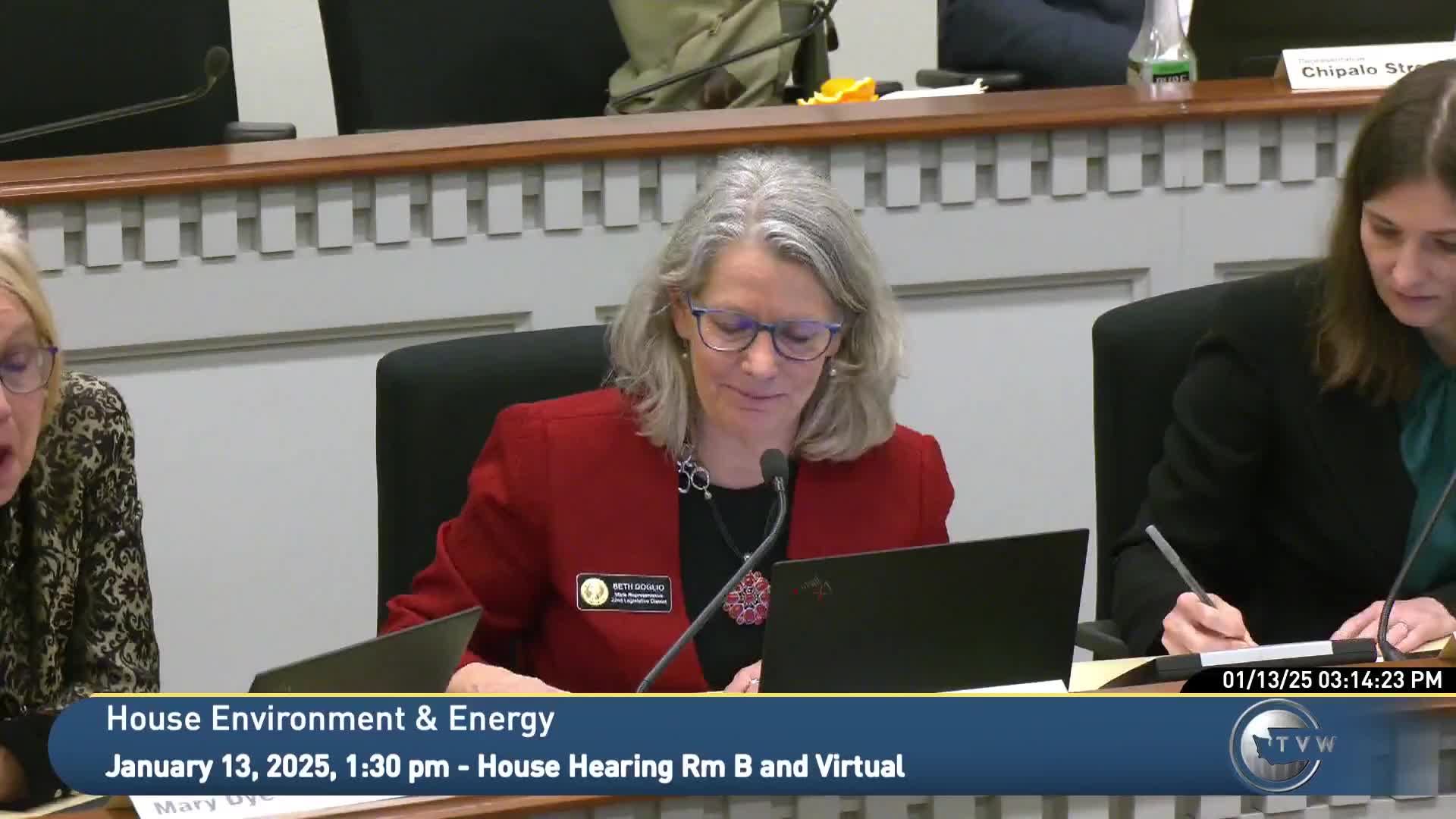Bill would give Ecology greater role in landfill permits and penalties
Get AI-powered insights, summaries, and transcripts
Subscribe
Summary
Representative Doerr presented House Bill 1154 to require Department of Ecology review and approval of landfill permits before local jurisdictional health departments issue or renew them and to expand Ecology’s enforcement authority, including suspension of permits and civil penalties up to $10,000 per day.
House Bill 1154, presented by Representative Doerr to the Environment & Energy Committee, would change how permits and enforcement for landfills and other solid-waste handling facilities are coordinated between jurisdictional health departments and the Washington Department of Ecology.
Under current practice, local jurisdictional health departments (JHDs) issue permits for solid-waste facilities and Ecology may review and, in some cases, appeal permit issuance to the Pollution Control Hearings Board. HB 1154 would require Ecology to review and approve every landfill permit or renewal before the JHD could issue or renew it. The bill also would authorize Ecology to require JHDs to amend proposed landfill permits to ensure they conform to applicable laws and rules, allow Ecology to suspend a permit or facility that is operating in violation of permit or state solid-waste regulations, and permit both JHDs and Ecology to impose civil penalties of up to $10,000 per day for violations. The bill creates an appeal path to the Pollution Control Hearings Board and requires each JHD, starting Jan. 1, 2026 and every five years thereafter, to provide Ecology with a list of violations for facilities operating in their jurisdictions.
Representative Doerr said the bill grew from constituent reports of noncompliance and operational problems at several landfills; she told the committee there are landfills in Yakima that have been "on fire" for over a year and framed the bill as clarifying permitting authority and adding enforcement tools. “We have quite a few landfills that are out of compliance. There are a couple actually in Yakima that are on fire and have been for over a year,” Doerr said.
Local residents and community groups testified in support of the bill on grounds that stronger oversight and penalties would accelerate compliance at problem facilities. Nancy Lust, representing Friends of Rocky Top in Yakima County, described years of difficulty getting a local facility to address litter, odor and groundwater monitoring and argued that earlier Ecology oversight or penalty authority could have sped compliance. “A landfill that is following the regulations shouldn't have any fines,” Lust said.
Department of Ecology program manager Peter Lyon testified that Ecology supports the policy in principle and that the measure would provide a useful tool for supporting local health departments as they enforce facility compliance; he asked for a technical date correction submitted to the committee record. Jamie Bodden of the State Association of Local Public Health Officials said local health jurisdictions welcome strengthened oversight but asked for clarified coordination if both Ecology and JHDs are given penalty authority, expressed concern about shifting appeals away from local processes and recommended tightening language on required data submissions.
Representatives of the solid-waste collection and recycling industry said they support robust regulation but want working through details. Nick Struley of the Washington Refuse and Recycling Association said the association supports robust regulation and enforcement but that the bill’s details matter. Troy Lautenbach, a recycling-business owner, said he values the working relationship with local health departments and expressed concern about another agency issuing fines that could bypass locally established permitting relationships.
Supporters urged the committee to pass the bill so Ecology could provide regulatory backup to local health departments and give regulators the authority to require corrective actions and assess penalties; supporters and Ecology staff agreed the text contains technical items needing refinement. The hearing record closed with testimony; no committee vote or formal action on HB 1154 was recorded during the hearing.
Ending: HB 1154 would expand Ecology’s pre-issuance role and enforcement authority for landfill permits and set a civil-penalty cap of $10,000 per day; supporters said the changes are needed to address chronic noncompliance at some facilities, while local health jurisdictions and industry asked for clarified coordination and appeal procedures before implementation.
